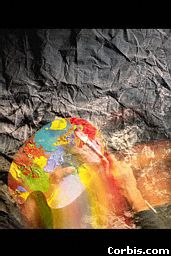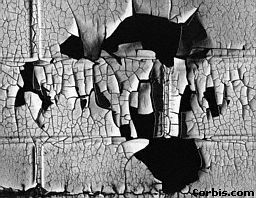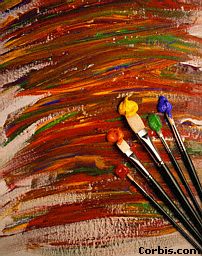|
PART 6: Plato’s
Allegory of the Cave, the Transcendence of the human brain and what’s
left of “the urge to love”
|
|
Section 3: What’s left to say about “the urge to love”
|
|
|

©Corbis.com
|
| Plato’s Allegory
of the Cave represents the metaphor that there is something unambiguous
about human experience. That is, there is something outside yourself
that you can go to in order to understand “reality”. In some ways we
can think of this journey as the rethinking of the metaphor which represents
the notion that concepts and ideas, rather than something the brain understands,
looks up to, or makes up, is actually responsible for the experience of
love, as well as its very construct. |
| So then how
is The Allegory of the Cave sound in terms of the conceptual framework
I laid out here? |
| Well, the
Cave may represent the sum total of the individual’s experience. The
flickering on the walls may be thought of as the stuff the brain makes
sense of. These may be the inputs to the brain from the outside world
but are creations of the brain as well. The unconsciousness and the
I function may be thought of as the source of the archetypes, ideas
and concepts produced in the cave. The ambiguity comes into play because
both the flickering seem indistinct and imperfect from the philosopher/I
function desperately trying to makes sense of the creations of its cave. |
|

© Corbis.com
|

© www.corbis.com/W. Cody
|
| The downside
is that because the flickering is indistinct, a confused gloomy picture
may be painted by the philosopher/I function. But the upshot of all this
is that your brain has the unique ability to
transcend itself through its own exploration! |
| Concepts
that the brain makes up in this journey, such as love, exist. I hope that
this project just gave the origin of their existence: |
|
CONCEPTS ARE MANIFESTED IN THE
UNIQUE MORPHOLOGY OF YOUR BRAIN
|
|
| Also, the
way the material matter is organized inside your brain gives rise to
the “urge to love” which may be traced to a unique brain state. However,
the “aboutness” of the phenomenon still remains. This is what gives rise
to unpredictability and transcendence of our being. |
| The way
we conceptualize, say “the urge to love’ is …beautiful? Sad? Uplifting?
All these are human constructs of the brain. So what’s left to say about
the “nature” of the “urge to love”? |
| Believe in
love, the genome is there to support it, experience it and let your brain
use it as a subject of exploration … I am convinced that you will conjure
up something unique and maybe worthwhile. |
|

|

|
|
|
Index
Introduction
Part1
Part2
Part3
Part4
Part5
Part6
|